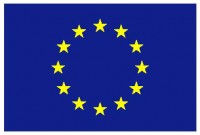The study from the European Environment Agency (EEA) found
that both jobs and innovation could grow from a resource-efficient,
‘green’ economy.
 The agency reported on
its study, which it notes found that European nations can both “create
jobs and encourage innovation” through “using resources much more
efficiently”, with the study describing a range of policies that have
“proven environmental and economic benefits”.
The agency reported on
its study, which it notes found that European nations can both “create
jobs and encourage innovation” through “using resources much more
efficiently”, with the study describing a range of policies that have
“proven environmental and economic benefits”.
The study, Resource-efficient green economy and EU policies, is said by the EEA to consider “how European economies can drive more efficient material resource use” as part of a “transition” towards what it calls a ‘green economy’, and the agency added that while “many environmental trends are gradually improving”, the EU will need a “fundamental, systemic reorientation of its economy if it is to meet some of its long- term environmental objectives”.
One such objective – cutting greenhouse gases by 80 to 95 percent of 1990 levels by 2050 – will “not be possible by solely relying” on small gains, and plans mooted by the report include reducing labour taxes and increasing tax of “inefficient resource use and environmental pollution”, with such taxes underused in the EU but offering potential “multiple benefits” such as “eco-innovations and competitiveness”.
Being strong in terms of environmental regulation could also give the EU a “competitive advantage” by influencing other markets to take it up as well, and the aim to increase manufacturing to 20 percent of GDP by 2020 “could be an opportunity to boost environmentally-beneficial innovation”, though this growth “must be consistent with EU environmental priorities” to avoid “negative consequences”.
On a slightly more negative note, the report added that the economic crisis, whilst “partially reducing emissions of greenhouse gases”, did not have much of an impact on long-term environmental trends, and in some cases “seems to have slowed progress”.
Hans Bruyninckx, EEA Executive Director, commented: “Innovation may be the single most important driver to change the inefficient way we currently use resources. Environmental innovation is key to address the challenges of the 21st century.
“If we want to ‘live well within the ecological limits of the planet’ as stated in the 7th Environmental Action Programme, we will need to rely heavily on Europe’s inventiveness. This is not just about new inventions – encouraging the uptake and diffusion of new green technologies may be even more important.”
Πηγή: http://www.therecycler.com/posts/eu-study-finds-green-economy-can-boost-jobs/
 The agency reported on
its study, which it notes found that European nations can both “create
jobs and encourage innovation” through “using resources much more
efficiently”, with the study describing a range of policies that have
“proven environmental and economic benefits”.
The agency reported on
its study, which it notes found that European nations can both “create
jobs and encourage innovation” through “using resources much more
efficiently”, with the study describing a range of policies that have
“proven environmental and economic benefits”.The study, Resource-efficient green economy and EU policies, is said by the EEA to consider “how European economies can drive more efficient material resource use” as part of a “transition” towards what it calls a ‘green economy’, and the agency added that while “many environmental trends are gradually improving”, the EU will need a “fundamental, systemic reorientation of its economy if it is to meet some of its long- term environmental objectives”.
One such objective – cutting greenhouse gases by 80 to 95 percent of 1990 levels by 2050 – will “not be possible by solely relying” on small gains, and plans mooted by the report include reducing labour taxes and increasing tax of “inefficient resource use and environmental pollution”, with such taxes underused in the EU but offering potential “multiple benefits” such as “eco-innovations and competitiveness”.
Being strong in terms of environmental regulation could also give the EU a “competitive advantage” by influencing other markets to take it up as well, and the aim to increase manufacturing to 20 percent of GDP by 2020 “could be an opportunity to boost environmentally-beneficial innovation”, though this growth “must be consistent with EU environmental priorities” to avoid “negative consequences”.
On a slightly more negative note, the report added that the economic crisis, whilst “partially reducing emissions of greenhouse gases”, did not have much of an impact on long-term environmental trends, and in some cases “seems to have slowed progress”.
Hans Bruyninckx, EEA Executive Director, commented: “Innovation may be the single most important driver to change the inefficient way we currently use resources. Environmental innovation is key to address the challenges of the 21st century.
“If we want to ‘live well within the ecological limits of the planet’ as stated in the 7th Environmental Action Programme, we will need to rely heavily on Europe’s inventiveness. This is not just about new inventions – encouraging the uptake and diffusion of new green technologies may be even more important.”
Πηγή: http://www.therecycler.com/posts/eu-study-finds-green-economy-can-boost-jobs/
Δεν υπάρχουν σχόλια:
Δημοσίευση σχολίου